Editor’s Note: This article was originally published in Swedish in the online publication Blankspot.
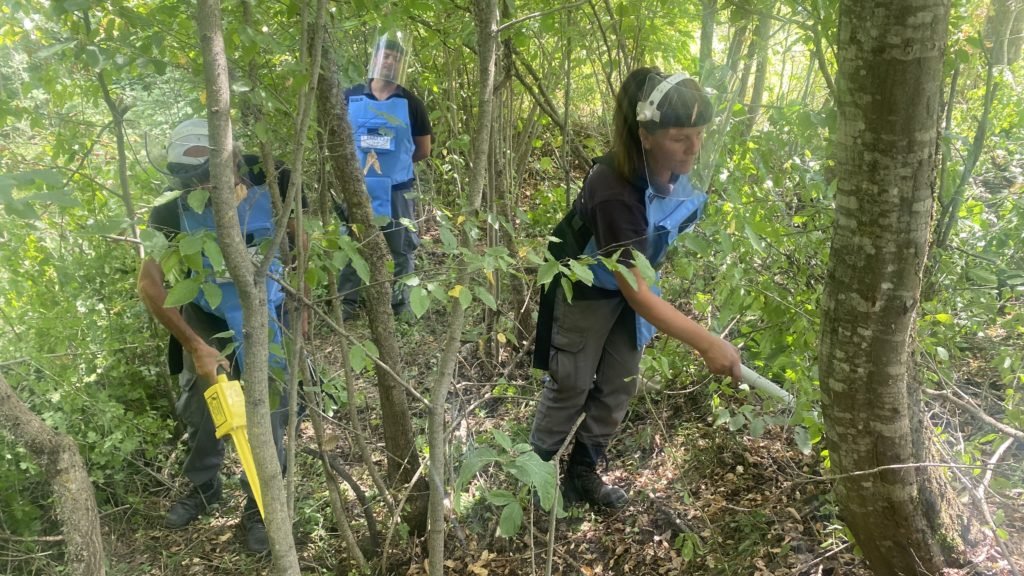
It’s 7 a.m. Lusine Asryan kisses her sleeping daughter and gets ready for work. She puts on a vest and a helmet. The 38-year-old mother of three is heading to the minefield through blackberry bushes to detect cluster bomb remnants under the scorching sun. Asryan has been working at the HALO Trust in Nagorno-Karabakh for seven years.
The organization states that Nagorno-Karabakh tops the list of mine accidents per capita in the world. A quarter of the victims of these accidents are children.
On September 27, 2020 Azerbaijan (backed by Turkey) launched a large-scale war against Nagorno-Karabakh. As a result of the war, most of Artsakh is now occupied by Azerbaijan, including Asryan’s village of Ughtasar. Asryan now lives in a suburb of Stepanakert, where her family is building a new house.
Before the 2020 war, HALO Trust’s operations in Nagorno-Karabakh consisted mainly of demining. But the nature of their work has changed during and after the war.
The last war saw Azerbaijan use Israeli-produced M095 cluster bombs, not only on the battlefield, but also in residential areas. Cluster bombs are internationally banned, indiscriminate weapons capable of harming civilians even years after they are fired.
“We mainly deal with unexploded ordnance: ball aerial bombs, grenade launchers, mortars, 95 percent of which are cluster bombs. The main goal of our team is to warn and inform both adults and children to ensure their safety,” says Anahit Grigoryan, head of HALO’s Mines and Unexploded Ordnance Awareness Team. The team visits schools twice a year and provides vital information to students. Often, even adults are not aware of the scale of the danger, so Grigoryan’s team takes a holistic approach to informing the entire community. This type of education is a matter of life and death. According to the data, there have been 24 cases of cluster bomb explosions since the 2020 war; one person has died.
Demining teams consist of eight people, including a commander, two paramedics and a driver. Asryan’s team is working in the area of Nngi village, 20 kilometers from Stepanakert. Every inch of the village was heavily bombed during the war. The village is in a wooded area, which poses a challenge for clearing operations.
Upon assessment of the area, the team found unexploded ordnance – 73 cluster bombs. After clearing the areas near the village, the work continues in the gardens of the villagers. The villagers are happy to meet the HALO team members; they jokingly ask the deminers to do their cultivation work along with demining.
Demining is stereotyped as a masculine profession, but Asryan confidently shrugs this off. She says that HALO needs strong women. When adapting to the job, the main challenge for her was not physical labor, but perceptions and pressures from society. At first, she could not resist this pressure and started looking for another job. But then she realized that she should break those stereotypes and went back to work. “It’s not difficult to work with men. On the contrary, we support each other, complement each other, as if we are a big family,” says Asryan, who met her husband at HALO Trust. Her brother Mkhitar also worked there. Before the war, her work at the HALO Trust was her happiest time. Her brother, unfortunately, was killed during the war, and her husband was wounded.
Asryan blissfully recalls her home in Ughtasar, including the pomegranate gardens she planted with her own hands and the yard decorated with flowers. When asked about longing for home, her eyes filled up with tears. “Of course I miss my home, my village, but after losing my brother, I have reevaluated and devalued material things. The most important thing is the loss of lives, the people we can’t bring back. We can always build houses,” said Asryan.
While she does not work with the same enthusiasm, she still takes her job very seriously. After finding and isolating each unexploded bomblet, Asyran says she feels calm and senses the importance of her job.
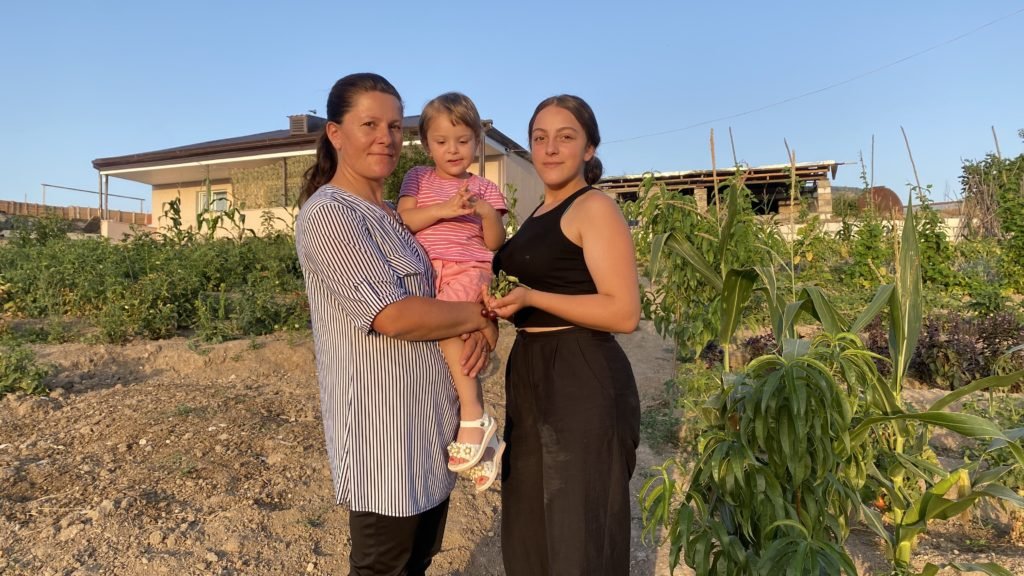
After work, Asryan looks forward to going home and hugging her daughter Arpy. After having coffee with her mother, siblings and their children, she goes into the vegetable garden where she cultivates beans, tomatoes and cucumbers. She enthusiastically talks about growing watermelons this year and finds time for beekeeping as well as breeding geese.
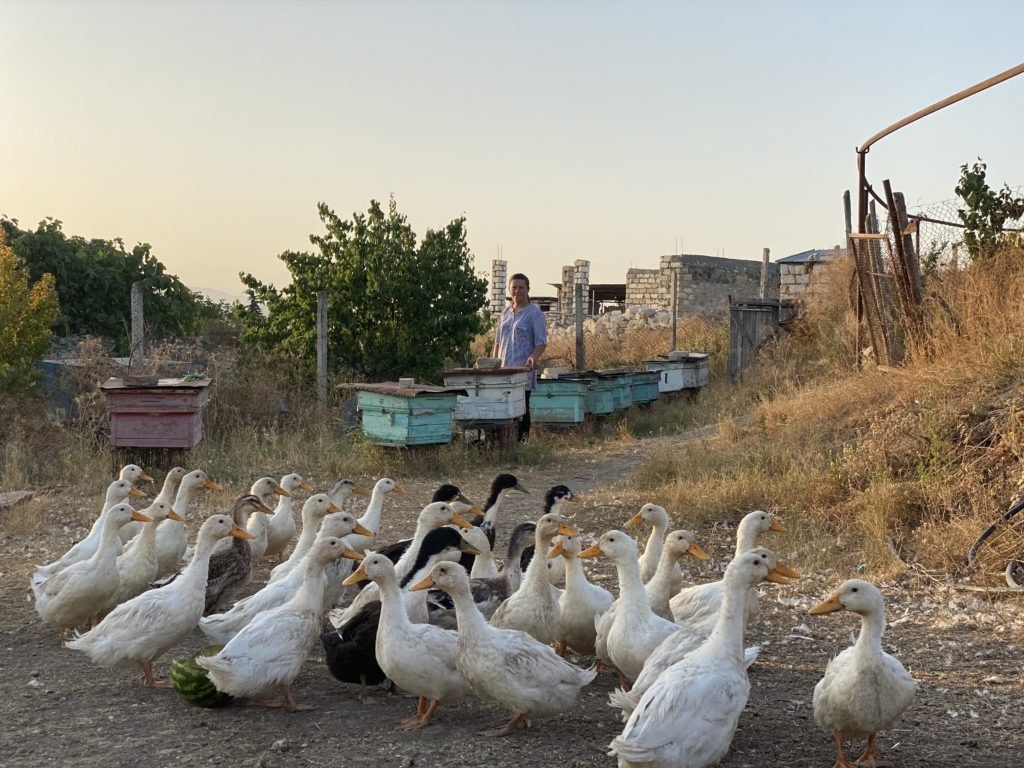
Her teammate Mariam Matevosyan, 23, has been working at The HALO Trust since she was 19. Matevosyan is from Haterk village in the region of Martakert. In addition to demining, Matevosyan also works as a paramedic on the team. During the war, she volunteered as a nurse in a military hospital. She has traumatic memories of maimed people injured by prohibited weapons, cluster munitions and phosphorus bombs. “Now the nature of our work has changed. Now, it is more dangerous,” said Matevosyan. “After clearing the territory, I only feel proud of the importance of my work.”
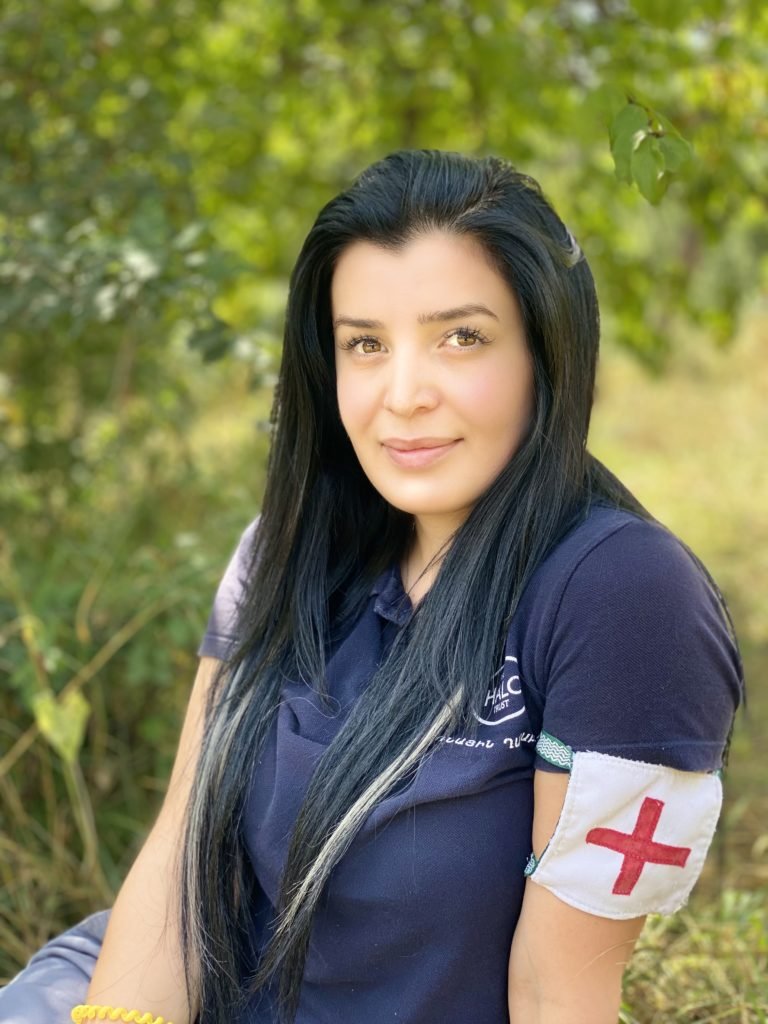
The main dissatisfaction for Matevosyan, Asryan and others is the low salary, which is further impacted by the dollar devaluation. Matevosyan studies pedagogy part-time and tries to improve her English. She also loves to participate in dance classes. Zumba not only helps her stay fit, but also improves her communication with other young women of her age. Dance offers an escape from the post-war memories and provides an opportunity to feel more free and feminine.
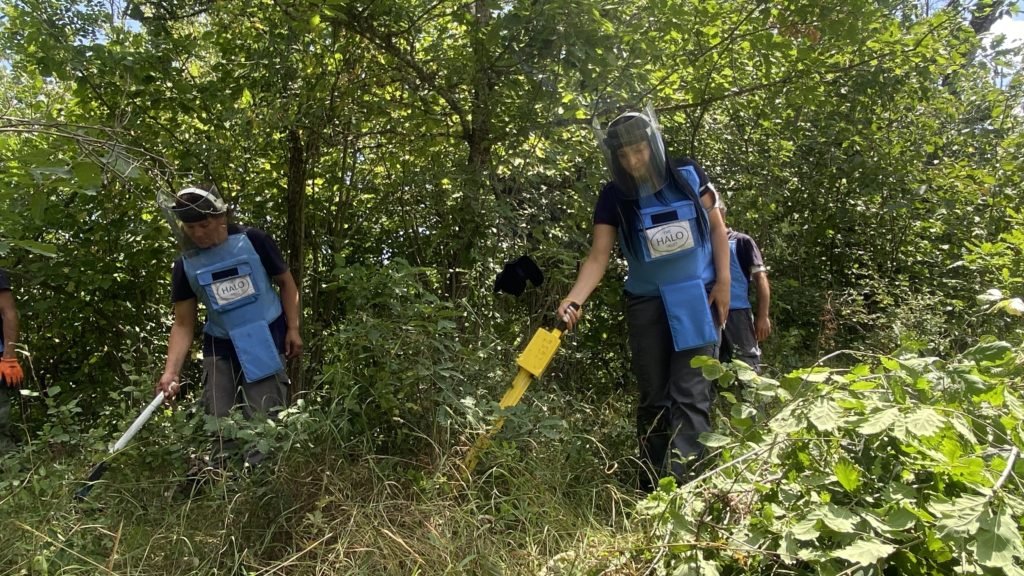



Thank you Siranush for bringing us these amazing women’s story , so proud of them !
I am grateful to The Armenian Weekly for giving me the opportunity to tell about Artsakh and the people living here, and thank you for reading it.